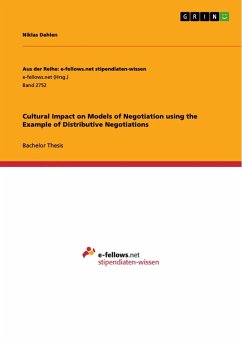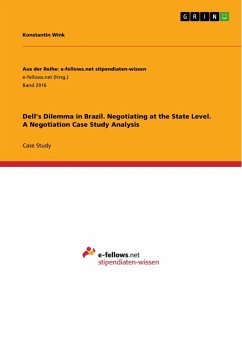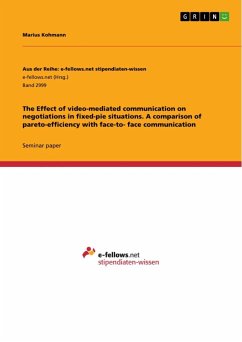Bachelor Thesis from the year 2014 in the subject Business economics - Miscellaneous, grade: 1,3, EBC University Hamburg, language: English, abstract: Published in 1982, Howard Raiffa's book "The Art and Science of Negotiation" constitutes the dawn of a new era with its asymmetrically prescriptive/descriptive orientation. It consolidated distinctive approaches, boosted research and overcame thinking barriers. In times of a globalized, highly interdependent world with multibillion dollar cross border M&A transactions, international business negotiations are an essential part of the global economy and shape a company's success. This thesis describes the cultural dimensions of Hofstede and Hall and additionally Raiffa's negotiation analysis from the perspective of distributive negotiations. A new approach for international business negotiations is introduced which should enable negotiators to deal with differences at an international stage. In order to understand if and how culture affects negotiation hypotheses are derived from theoretical grounded work. By conducting several interviews with negotiators from different cultural backgrounds, tendencies are illustrated and the question whether further empirical research is needed is answered. The interviews show that negotiations between individuals from countries with different power distance indexes often lead to non-agreements. Moreover, the interviewees think that negotiators with an individualist mindset are more likely to reach an agreement in distributive negotiations. Lastly, the interview reveals that negotiators from a country scoring high in masculinity tend to apply rather distributive than integrative negotiation styles. Further validation of the hypotheses with case stud-ies and experiments have yet to be conducted.








